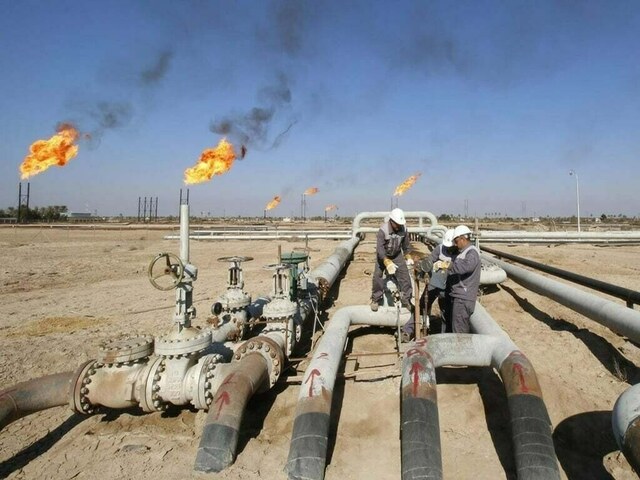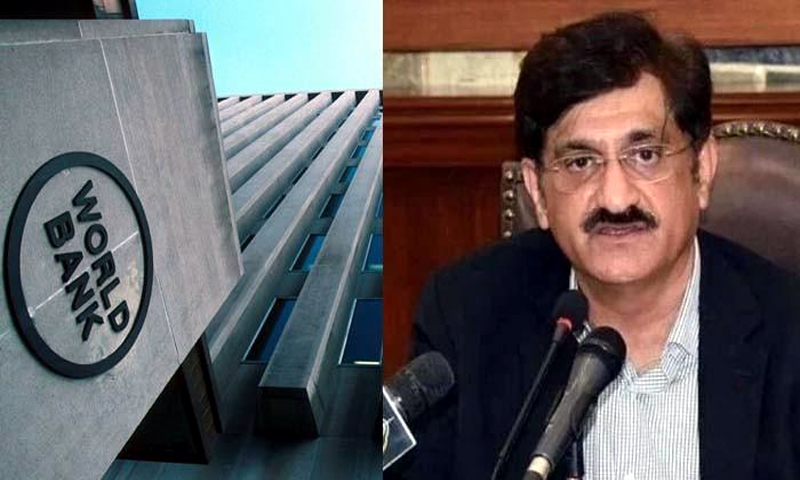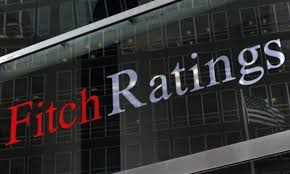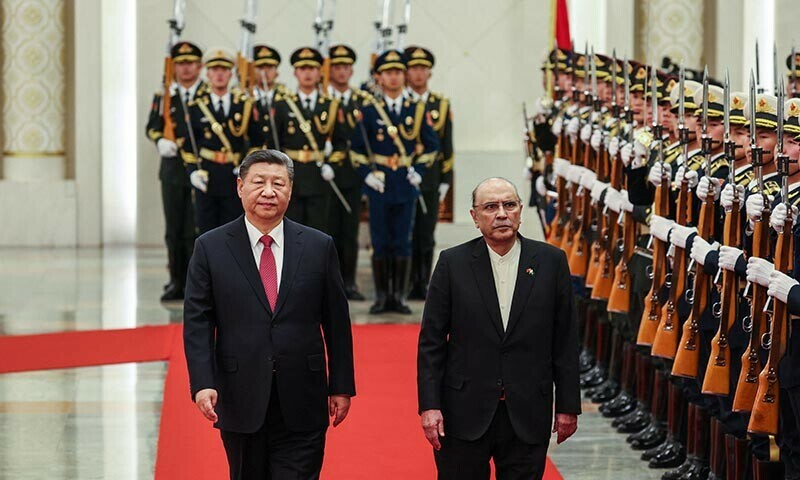TRADE & ECONOMY
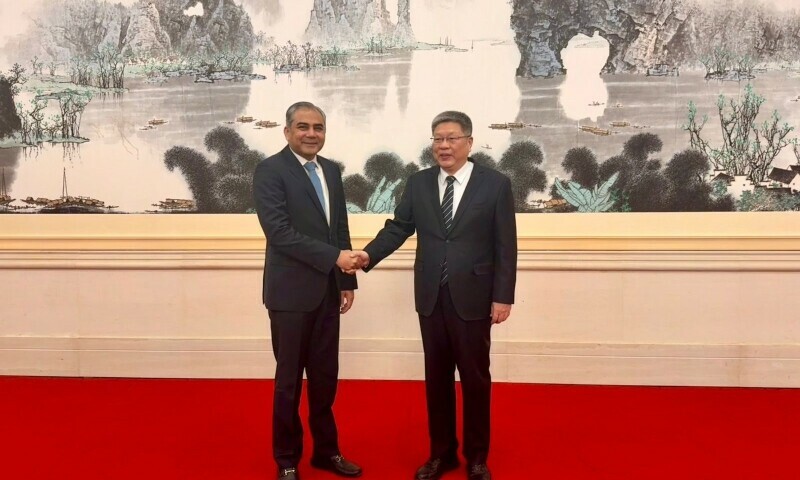
Pakistan and China have agreed to enhance mutual intelligence sharing and cooperation in a high-profile meeting between their interior ministers on Wednesday. The development comes against the backdrop of ongoing security threats targeting Chinese personnel working in Pakistan, which have prompted China to urge Pakistan for a joint security management system.
Interior Minister Mohsin Naqvi met with his Chinese counterpart Qi Yanjun during his official visit to Beijing as part of a delegation led by President Asif Ali Zardari. The delegation also included Deputy Prime Minister and Foreign Minister Ishaq Dar, Senator Saleem Mandviwala, and Dr. Asim Hussain.
The two-hour meeting between Naqvi and Yanjun focused on strengthening bilateral security measures, including the use of modern technology for police and paramilitary forces and acquiring advanced equipment from China. Discussions also revolved around improving border security and enhancing cooperation between the National Police Academy and the Beijing Police.
This move comes amid China's concerns over rising attacks targeting its nationals in Pakistan. One of the deadliest incidents occurred in July 2021 when a bus near the Dasu hydropower plant was attacked, killing nine Chinese engineers and two Frontier Corps personnel.
The interior ministers expressed satisfaction over the progress made in the January meeting of the Joint Working Group, where both sides reaffirmed their commitment to high-quality development in the second phase of the China-Pakistan Economic Corridor (CPEC). Industrialization, clean energy, and livelihood projects remain key priorities.
In a separate high-level meeting, President Asif Ali Zardari emphasized the "time-tested and all-weather friendship" between Pakistan and China in talks with Zhao Leji, Chairman of the Standing Committee of the National People's Congress. Both leaders highlighted the importance of "strategic mutual trust" and high-level exchanges to deepen bilateral cooperation.
The leaders underscored the significance of promoting science, technology, renewable energy, and infrastructure development under the second phase of CPEC. They described the project as a "shining example of people-centric development focused on shared prosperity and win-win cooperation."
Both sides also discussed strengthening institutional linkages, including parliamentary exchanges and the CPEC Political Parties Joint Consultative Mechanism, to further bolster bilateral ties.
